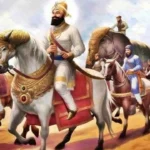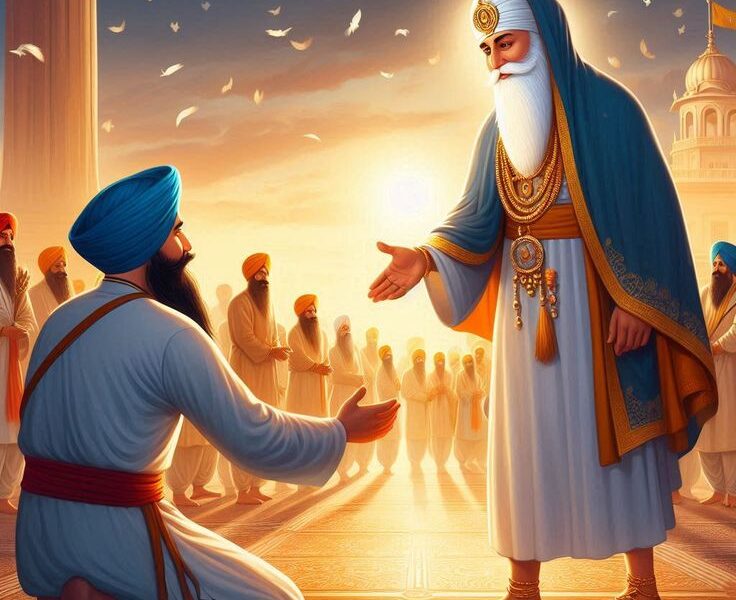8 Savan
Sri Guru Harkrishan Sahib Ji was the eighth of the ten Sikh Gurus and holds a revered place in Sikh history due to his profound spirituality wisdom and compassionate deeds despite his young age.

His birth anniversary is celebrated on 8 Savan in the Sikh calendar corresponding to July 23. This day is time for Sikh’s to honor his legacy reflecting on his teachings and the profound impact he had on the Sikh community. The celebration involves devotional activities community service and educational events that highlight his contributions to Sikhism.
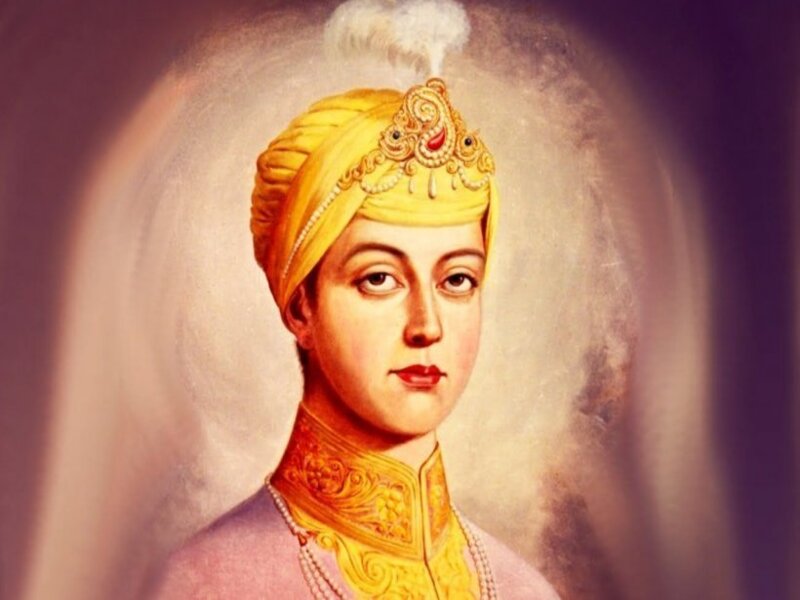
Early Life
In Kiratpur Sahib, Punjab, India, on July 7, 1656, Guru Harkrishan Sahib Ji was born. His parents were Mata Kishan Kaur Ji (Sulakhni Ji) and Guru Har Rai Ji the 7th Sikh Guru. Growing up in an environment full of Sikh beliefs and customs he demonstrated great spiritual awareness and calm mannerism from an early age.
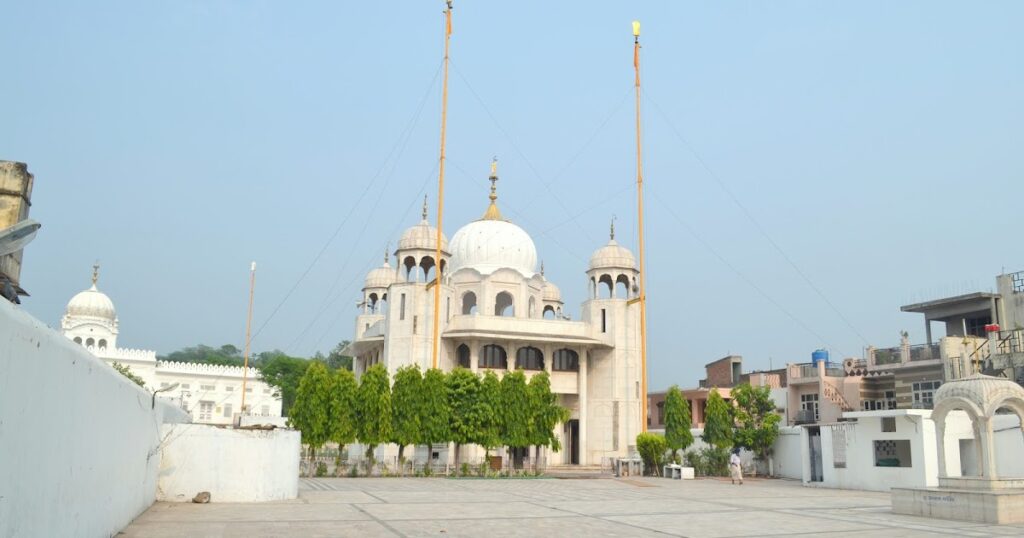
His early life was characterized by an unshakable adherence to Sikhism tenets and he soon gained a reputation for compassion and knowledge. His upbringing in Sikh principles prepared him for the duties that would come at young age. His birth was considered blessing.
Becoming the 8th Guru
In 1661, Guru Har Rai Ji, the father of Guru Harkrishan Sahib Ji, named him the 8th Guru of the Sikhs at the astonishingly early age of five. Given his youth, this choice was first viewed with suspicion by several Sikh community members. But his deep spiritual insight and charisma quickly allayed any concerns. Known as “Bala Pir” (Child Saint), he rapidly demonstrated that leadership and spiritual understanding are ageless.
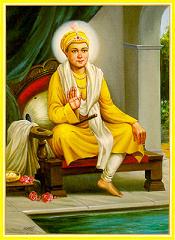
His teachings on humility, service, and devotion to God, along with his emphasis on these fundamental Sikh ideals, heralded a moment of spiritual renewal for the Sikh community. His guidance throughout these early years strengthened the tenets of the community and spirituality that his forebears had built.
Key Teachings and Contributions
The core teachings of Guru Harkrishan Sahib Ji were humility, compassion, and service to humanity. Even at such young age, he gained notoriety for his extraordinary healing powers, particularly when there was a smallpox outbreak in Delhi and he personally attended to the ill and suffering. His deeds of compassion broke down social and religious boundaries and embodied the equality and selflessness of the Sikh faith.
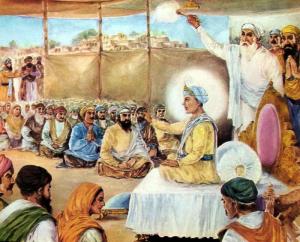
He advocated serving others and upholding humility as the cornerstones of authentic spirituality, regardless of one’s social standing. His focus on these principles not only strengthened the spiritual basis of Sikhism but also gave Sikhs something to aspire to in their day-to-day lives, encouraging a feeling of belonging and group duty.
Notable Events
One of the most significant events during Guru Harkrishan Sahib Ji’s life was his visit to Delhi in response to summons by the Mughal Emperor Aurangzeb. During his stay smallpox epidemic broke out, and Guru Harkrishan Sahib Ji tirelessly served the afflicted providing them with comfort and healing. His encounter with learned Brahmin, Lal Chand at Panjokhra Sahib, further demonstrated his spiritual prowess.
He enlightened Lal Chand by making an illiterate water carrier Chhaju Ram, explain the meanings of the Bhagavad Gita, showcasing that divine knowledge transcends social status and education. These events highlighted his role as a healer and a spiritual leader, reinforcing his teachings of equality and the power of divine wisdom.
Brahman and Guru Ji
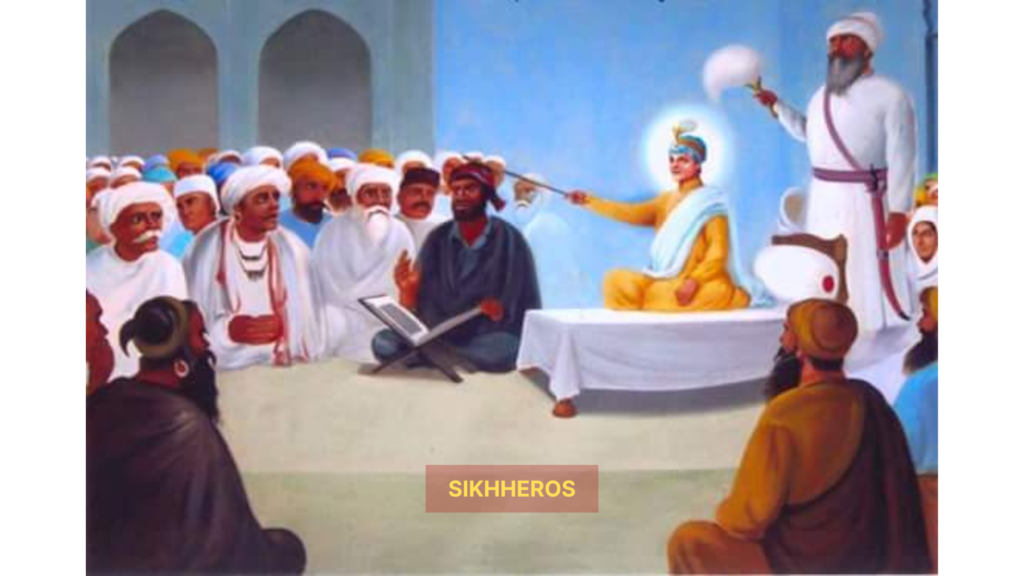
Once, while traveling to Delhi, Guru Harkrishan stopped in Panjokhda. A local Brahman priest inquired about the travelers, and a devotee informed him that it was the eighth Guru, Guru Har Krishan Ji. The Brahman met Guruji and challenged him, saying, “You might have named yourself Krishna, but can you explain the Gita to me?” Guruji replied that even if he did explain the Gita, the Brahman wouldn’t believe him. Instead, he suggested that the Brahman bring someone else to experience the true power of divinity.
The Brahman cunningly chose a boy named Chhaju, who was illiterate, stuttered, and appeared to be from a lower caste. He thought, “This boy can hardly say his name; how could he possibly explain the Gita?” They brought Chhaju before Guruji, and the Brahman selected the most difficult verses of the Gita for him to explain.
Guruji said, “Chhaju, you are now a wise scholar. I want you to explain the Gita.” With Guruji’s blessings, Chhaju began to interpret the complex passages like a seasoned scholar, clearly and comprehensively.
The Brahman was astonished by Chhaju’s flawless explanation. He couldn’t believe his ears, hearing insights into the Gita that he had never considered. It gave him a new perspective. Overwhelmed he asked for Guruji’s forgiveness saying Forgive me. I thought you were just little boy who knew nothing. I am a proud man with useless knowledge. You are one with God and know everything. God speaks through you. I am like a child before you.”
Guruji blessed the Brahman, who then embraced Sikhism and began to experience the divine truths he had only read about. This story teaches us that anyone blessed by Guruji can become learned and wise.
Martyrdom
While tending to the sick in Delhi Guru Harkrishan Sahib Ji caught smallpox and died on March 30, 1664 at the age of seven. To the end of his life he served others in spite of his own suffering. The last words he spoke Baba Bakale meant that the next Guru would be found in Bakala, which is how Guru Tegh Bahadur Ji was found.
The sacrifice of Guru Harkrishan Sahib Ji serves as moving reminder of his profound compassion and selfless dedication. His legacy inspires Sikh’s to uphold the ideals of humility compassion and selfless devotion. His death is remembered as act of tremendous sacrifice and dedication to the welfare of humanity.
Parkash Celebrations
The Parkash of Guru Harkrishan Sahib Ji on 8 Savan/July 23 is marked by special prayers, kirtan (devotional singing) and community service (langar) in Gurdwaras worldwide. Sikh’s engage in various charitable activities reflecting the Guru’s legacy of service and compassion. Educational events are organized to teach about his life and teachings ensuring that his values continue’s to inspire future generations.

This day is an opportunity for Sikh’s to renew their commitment to the principles of humility compassion and selfless service exemplified by Guru Harkrishan Sahib Ji. The celebrations also foster sense of community and reinforce the spiritual and cultural bonds among Sikh’s.
Legacy
The impact of Guru Harkrishan Sahib Ji is immense and long-lasting. In spite of his short life, he made a significant contribution to Sikhism that upholds the principles of service, humility, and compassion. He is still regarded as a holy person whose example and teachings motivate Sikhs everywhere. The upholding of the values he personified—such as providing care for the ill and serving others without distinction—honors his legacy.
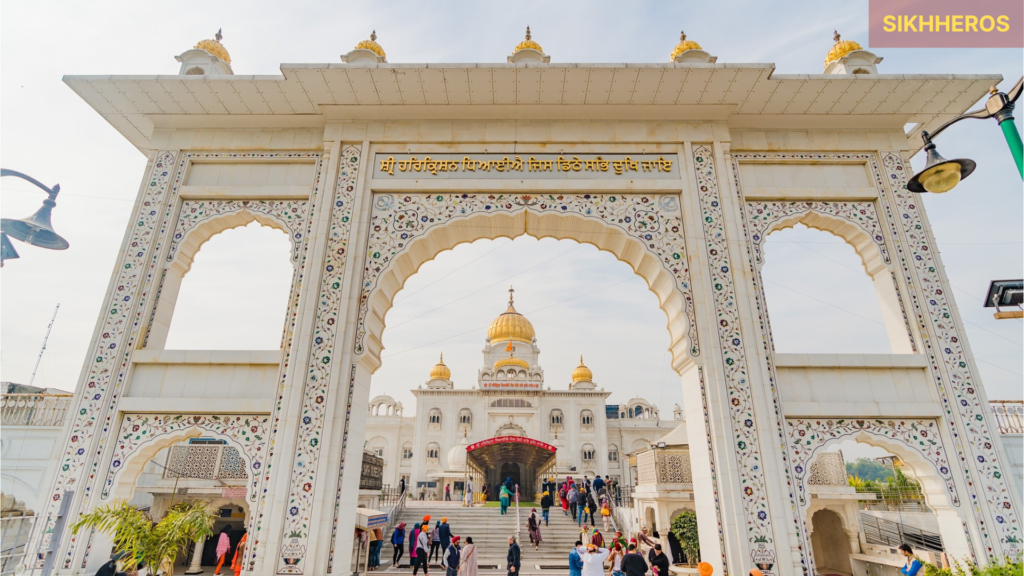
Gurdwara Bangla Sahib in Delhi, among other monuments, is a center of worship and social service that bears witness to his life and activities. His deeds and teachings have had a lasting impact on Sikh history and continue to direct the community’s spiritual development.
Cultural and Spiritual Impact
The life and teachings of Guru Harkrishan Sahib Ji have deep Cultural and spiritual impact on Sikh’s. His emphasis on compassion and service has shaped the Sikh ethos encouraging Sikh’s to engage in acts of kindness and community service. His healing miracles and his ultimate sacrifice have become integral to Sikh lore inspiring stories songs and literature that celebrate his life.
The commemoration of his Parkash serves as reminder of the enduring values of Sikhism, reinforcing the community’s commitment to living by the principles of humility, equality and selfless service. His influence extends beyond the religious sphere impacting cultural practices and social values within the Sikh community.
The celebration of Parkash Sri Guru Harkrishan Sahib Ji on 8 Savan/July 23 is a significant event for Sikhs. It honors the life and teachings of the eighth Sikh Guru, whose short but impactful life continues to inspire and guide Sikhs around the world. His legacy of compassion, humility, and service remains a cornerstone of Sikh values and practice, reminding Sikhs of the enduring power of faith and selfless dedication to the welfare of others. The observance of his birth anniversary serves as a moment of reflection, community solidarity, and reaffirmation of the principles that define Sikhism.





